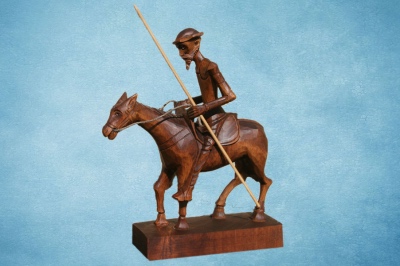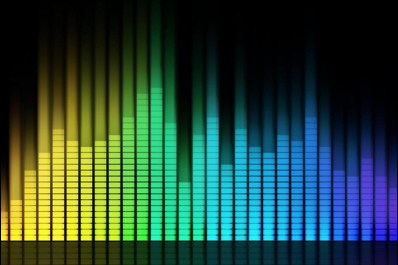Bohemian Rhapsody
|
This essay is about my favorite song by Queen, Bohemian Rhapsody. I don't understand my love for the song, which goes back decades starting when it was released in 1975. Among the many songs by Queen, I can grasp why I love We Are the Champions. It is a musical reaffirmation of our desire to succeed in life against all odds. For those of us living near Chicago doing the 90s, We Are the Champions is emblematic of the Bulls 6-NBA Championships during that decade. However, Bohemian Rhapsody haunts me. When I cannot figure something out, I will push until I discover at least some answer to my hauntings. 
Before I begin my musical exegesis of Bohemian Rhapsody, I need to tell what is more than obvious to those that know me; I have no musical ability...none, nada, nichts. However, I attempt to make up for that shortfall but truly loving a large montage of pieces of music, ranging from the classics to rock. 
Freddie Mercury wrote Bohemian Rhapsody. Let's begin by addressing my haunting. Freddie Mercury wrote Bohemian Rhapsody to address his personal hauntings, even though he denied that truism when asked. The song begins with him setting the tone for the rest of the lyrics.
It seems obvious that this portrays Freddie's own life, even though when asked, he denied that Bohemian Rhapsody was his autobiographical reflection on his transformation in his life. He needed help or as he says that he was "caught in a landslide" without any means to escape.
Freddie has just commented upon his suicide by killing his former self. This suicide, which resulted in killing the straight Freddie and resurrecting a new and gay Freddie was depressing. He isn't familiar with this new world in which he was living. Nonetheless, the world will carry on since his personal suffering didn't matter at all to the rest of the world.
Obviously, the new Freddie is scared as he attempts to face reality. In conclusion, he wonders sometimes that he would have been better off not being born, which would have avoided all his hurt and suffering.
Freddie sees himself as the little man and then adds that is like Scaramouch, which is an Italian comedic clown. He will address his fandango, which is a Portuguese word for fate or destiny. However, like Galileo, he carries on like Galileo in spite of the thunder and lightning that was facing him.
Freddie sees himself as a nobody caught between Bismillah, which is the Muslim term for Allah, and Beelzebub, which is the term for the devil. He merely wishes to escape but cannot.
Freddie tells the forces opposing him that they don't care about him, and he wants to escape them.
Freddie faced reality and claims that nothing really matters. However, if it doesn't matter, why is he battling the forces against him? He is determined regardless what others feel or think. 
While Freddie Mercury dealt with his hauntings, I did some further research about the song and his life. I discovered some things about which I knew nothing. It turns out that his family was Zoroastrians. I have taught a world religion survey class at two different universities over a period of two decades. Zoroastrianism predated Christianity by five centuries and influenced a great deal of Christian and Muslim beliefs. They believed in a cosmologic dualism in which Spenta Mainyu, the Good Spirit, and Angra Mainyu, the Evil or Destructive Spirit, formed this dualism. Regarding Freddie Mercury, there are two beliefs within Zoroastrianism that affected him. Zoroastrianism doesn't permit conversions. In other words, a person is born into the faith. A non-Zoroastrian person couldn't convert or marry into the faith. For several years, he dated Mary Austin who wasn't Zoroastrian. Freddie wrestled with being gay during much of the 70s while dating Austin. However, Zoroastrians don't accept gays or lesbians as Zoroastrians even if their parents were within that faith. Freddie's parents were Zoroastrians and lived in Zanzibar but immigrated to England because of the 1964 Zanzibar Revolution. Therefore, he had to face being gay from a religious perspective. He felt isolated religiously. As for the actual title of the song, the term, Bohemian, relates to a place in present-day Czech Republic where artisans lived a century ago. The artisans were free spirits and had little regard to societal norms of the time. In the musical genre, the term, rhapsody, is a one-movement piece of music that will range greatly in terms of emotion and moods from highs to lows. Finally, Freddie Mercury said of Bohemian Rhapsody, "It's one of those songs which has such a fantasy feel about it. I think people should just listen to it, think about it, and then make up their own minds as to what it says to them." And they have.... 
Ben & Jerry's spin on the song Ben & Jerry's started making Bohemian Raspberry in 2007. Some of the profits were given to the Mercury Phoenix Trust, which is a charity that addresses AIDS. This is Wayne's World's understanding of Bohemian Rhapsody. This is the Muppets' perception: This is how Starwars understands the song: Finally, this is a quote from Eleanor Roosevelt. Had she lived an additional dozen years, she would have heard Queen singing Bohemian Rhapsody. This is what she would have said about Freddie Mercury, "You gain strength, courage, and confidence by every experience by which you really stop to look fear in the face. You are able to say to yourself, 'I lived through this horror. I can take the next thing that comes along."
Visit the On Seeing the Light page to read more about this topic.
Visit the Connecting the Dots page to read more about this topic.
Visit the My Hauntings page to read more about this topic.
Visit the "Don Quixote" page to read more about this topic.
Visit the Music I Love and Why page to read more about this topic. 07/27/16 Follow @mountain_and_me |











